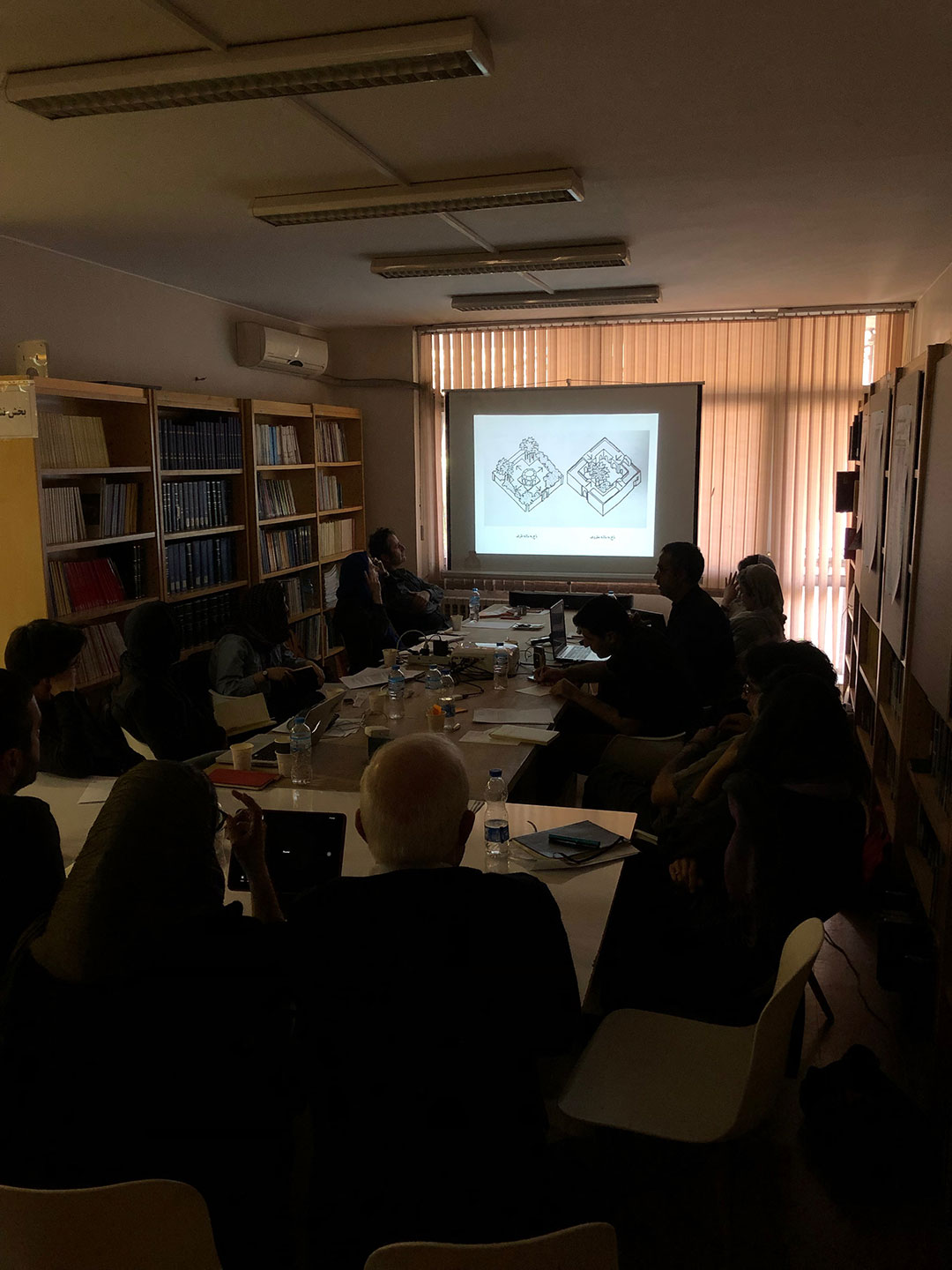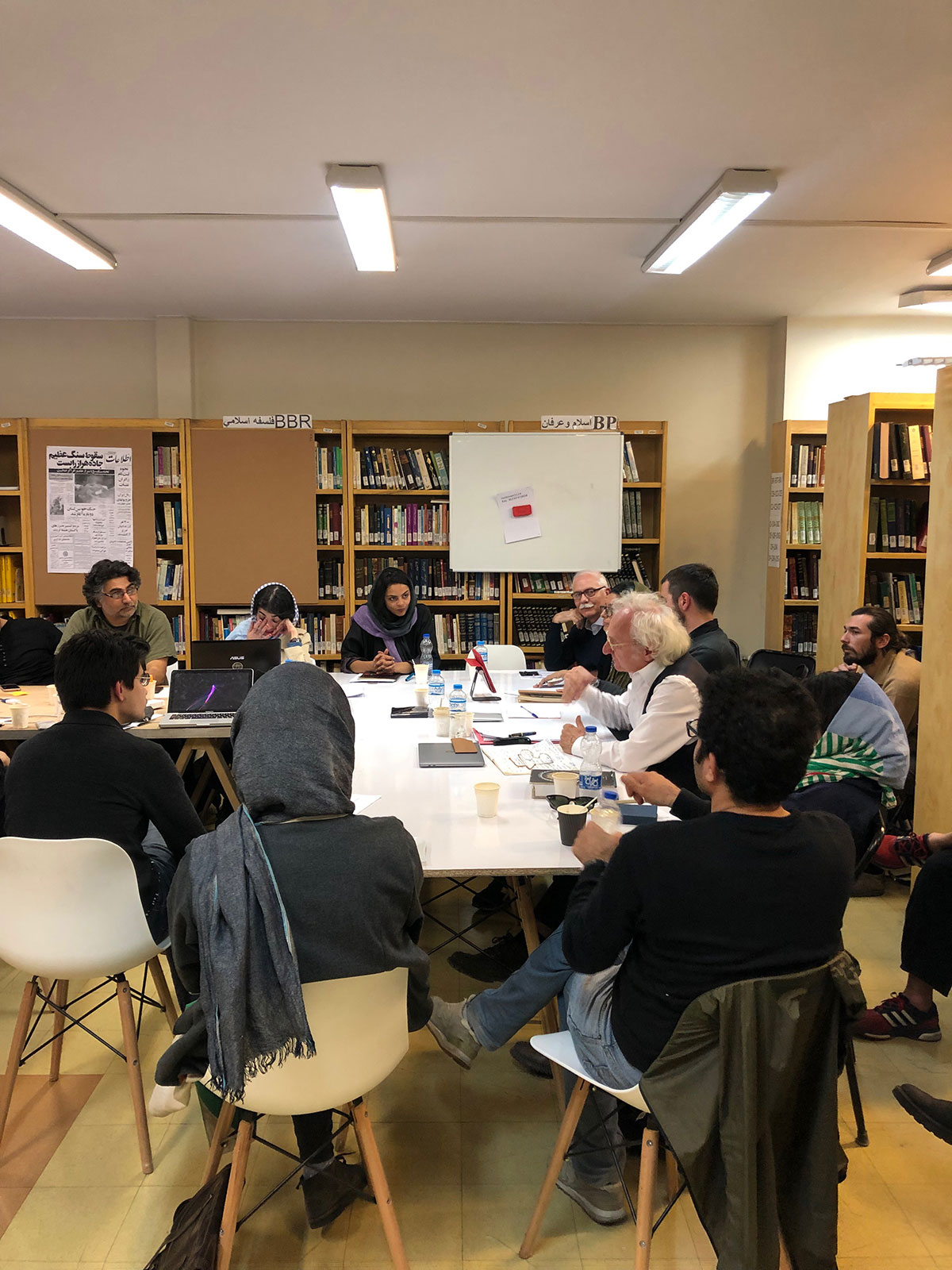Moderation: Reza Haeri
Day 1: Iranian Modernit(ies) and alternative conceptions of “Nature”.
10h am: Introduction to the day by Reza Haeri and Martin Guinard (curators)
10h30 am: keynote by Dr. Meysam Sefidkhosh ( Philosopher, Shahid Beheshti University)
12h am: short project presentation Shirin Mohamad (artist). Title: “Plot Generator”
2 pm: keynote by Homayoun Sirizi (Indepent writer and architect)
Followed by a collective discussion with all the participants.
Modernity in the singular is a misuse of language since, in every place where it occurred, it was achieved through a plural and non-linear process. But clarity with respect to the term is even more important in Iran, where it can refer similarly to Amir Kabir’s reforms, the Iranian Constitutional Revolution, the start of the extraction of oil, Reza Pahlavi’s rule…
In this project, we do not focus on the way in which successive implementations of modernity have interacted with Iranian traditions. Indeed, the extensive literature on the subject may frame the question as an already well-trodden territory, which may not necessarily help us grasp the challenges which are accompanying the ecological mutation. Therefore, the specific angle that we will take revolves around dualistic conceptions of Nature versus Culture in modern framework and their plausible revisions in Iranian context.
Historically, as the emergence of Modern science allowed for the continual renewal of our understanding of Nature, a clear division was drawn between Nature and Culture. This was a notable element within a set of dualistic conceptions characterising the course of Modernity. To put it bluntly, Modernity could be described, among other ways, as a project to free humans from Nature, which they wished to “possess and dominate” as Descartes famously expressed it. By doing so, Nature has been relegated to serving as the background of human action, conceived as an opposition to Culture.
The problem raised by the ecological mutation is that we are stuck with these dualistic conceptions which don’t allow us to assess the fact that Nature, now under the threat of human activity, has come to the foreground. In this new situation, how should we reshape our relevant conceptions? Where would we find vital resources to bypass this paralyzing split between Nature and Culture? Could we retrieve abandoned alternative conceptions, blocked by the modern framework? The point here is not to pay a nostalgic tribute to the past. It is to reopen questions of the relationships between humans and their environment which were shut down by the expansion of Modernity.
The purpose of this session will be to try assessing if the Iranian situation could offer us original approaches to reshape our conception of Nature, and thus to better understand the challenges imposed by the New Climatic Regime. For example, in this context can we consider the notion of “Eqlim” as a useful resource for reflection? The objective here is a brainstorm, or a collection of data sets, that are not yet necessarily bound by the rigor of classical academic standards, but which may serve as a first step to rethink this notion and its multiple implications.
Date and Location:
Institute of History of Science of the Tehran University
Saturday, April 27th, at 10 AM
Day 1: Iranian Modernit(ies) and alternative conceptions of “Nature”.
10h am: Introduction to the day by Reza Haeri and Martin Guinard (curators)
10h30 am: keynote by Dr. Meysam Sefidkhosh ( Philosopher, Shahid Beheshti University)
12h am: short project presentation Shirin Mohamad (artist). Title: “Plot Generator”
2 pm: keynote by Homayoun Sirizi (Indepent writer and architect)
Followed by a collective discussion with all the participants.
Modernity in the singular is a misuse of language since, in every place where it occurred, it was achieved through a plural and non-linear process. But clarity with respect to the term is even more important in Iran, where it can refer similarly to Amir Kabir’s reforms, the Iranian Constitutional Revolution, the start of the extraction of oil, Reza Pahlavi’s rule…
In this project, we do not focus on the way in which successive implementations of modernity have interacted with Iranian traditions. Indeed, the extensive literature on the subject may frame the question as an already well-trodden territory, which may not necessarily help us grasp the challenges which are accompanying the ecological mutation. Therefore, the specific angle that we will take revolves around dualistic conceptions of Nature versus Culture in modern framework and their plausible revisions in Iranian context.
Historically, as the emergence of Modern science allowed for the continual renewal of our understanding of Nature, a clear division was drawn between Nature and Culture. This was a notable element within a set of dualistic conceptions characterising the course of Modernity. To put it bluntly, Modernity could be described, among other ways, as a project to free humans from Nature, which they wished to “possess and dominate” as Descartes famously expressed it. By doing so, Nature has been relegated to serving as the background of human action, conceived as an opposition to Culture.
The problem raised by the ecological mutation is that we are stuck with these dualistic conceptions which don’t allow us to assess the fact that Nature, now under the threat of human activity, has come to the foreground. In this new situation, how should we reshape our relevant conceptions? Where would we find vital resources to bypass this paralyzing split between Nature and Culture? Could we retrieve abandoned alternative conceptions, blocked by the modern framework? The point here is not to pay a nostalgic tribute to the past. It is to reopen questions of the relationships between humans and their environment which were shut down by the expansion of Modernity.
The purpose of this session will be to try assessing if the Iranian situation could offer us original approaches to reshape our conception of Nature, and thus to better understand the challenges imposed by the New Climatic Regime. For example, in this context can we consider the notion of “Eqlim” as a useful resource for reflection? The objective here is a brainstorm, or a collection of data sets, that are not yet necessarily bound by the rigor of classical academic standards, but which may serve as a first step to rethink this notion and its multiple implications.
Date and Location:
Institute of History of Science of the Tehran University
Saturday, April 27th, at 10 AM



